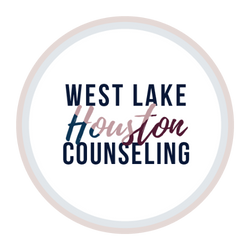LGBTQ Affirming Support addresses internal conflicts, coming out, social isolation, life stressors, conformity pressures, and fear of judgment.
LGBTQ+/Coming Out issues are common. Many people will question their sexuality over the course of their lifespan, and some people find they do not identify with strict “male” or “female” labels. Your sexual orientation and/or gender identity may not be causing you distress, however, there are life challenges that are inherently unique for gay, lesbian, bisexual, transgender, queer, questioning, intersex, or any other non-traditional sexual or gender identity.
If you are ready to schedule a therapy appointment, we invite you to to book a free 15-minute consultation to get started. We look forward to hearing from you!
Many people come from families where discussions about diverse gender and sexuality are not normalized. The absence of these discussions can result in people hiding their identities, which can become very isolating. Isolation and rejection quite often compound into depression and a host of other mental health symptoms. This is a safe and supportive space to sort through your experiences with a trusted therapist.
My approach to therapy draws on a strengths-based, collaborative perspective. I’m here to offer you a safe, accepting, non-judgmental environment to talk about issues affecting you the most. You can bring all parts of yourself to our work, including your religious and/or spiritual experiences if you need. I am a trans-affirming therapist committed to working within an anti-oppressive and culturally informed context. I’m also proud to be affiliated with the World Professional Association for Transgender Health (WPATH).
Therapy can teach you new skills, including how to better manage the social stressors of conformity, negotiate boundaries for healthier relationships, and expand an ongoing commitment to self-acceptance and self-care. It gets better.
Early therapy sessions allow us to build a strong working alliance. You are more than your challenges, and my intent is to understand your struggles and you as a person! We will go over the goals you have for therapy (and your life) to determine how to best use our time together. Setting goals is an important step in the therapy process so that you can track how well therapy is helping over time.
Foremost, my priority with clients is to ensure that they feel safe to engage in therapy. This involves reviewing confidentiality and its limits fully during the first session.
It is normal to have some hesitations about attending therapy. If you have never tried therapy in the past, you might wonder what the experience will be like. It is also common to worry about feeling vulnerable with someone you don’t know personally.
Your confidentiality is of utmost importance and will be honored in our relationship, even after therapy has concluded.
We work collaboratively, so you can ask questions. The early sessions are a good time to express your needs and preferences. I am committed to continuously educate myself so that you don’t feel burdened to guide or teach me during our sessions. My intention is to meet you where you are and offer support to help you reach your goals. I have a broad range of experience working with non-heterosexual and gender-non-conforming clients. I am trained in cultural humility and mindful that my methods align with your cultural context…this includes your religious or spiritual context as well, if applicable.
Individual Therapy helps clients suffering from challenges such as depression, anxiety, identity, relationship problems, and life transitions.
Couple Therapy can help with challenges such as intimacy, communication, arguments, toxic patterns, infidelity, conflict, and broken trust.

I help high achieving adult children of dysfunctional families address and deal with present issues caused by unresolved trauma, substance abuse, parental narcissism, and mental illness.